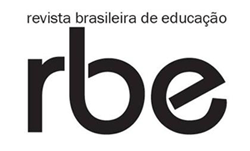In this article we discuss the relations between the civilizing function of instruction and its charitable role based on a study of the actions of the chambers and religious institutions in favour of education for poor children. In the Ancient Regime, education for the lowest strata of the population was associated with the diffusion of the Christian doctrine and vocational training as a means of control carried out by charitable institutions. The teaching of the first letters was aimed at facilitating the learning of doctrine without creating the possibility of social ascension by means of education. The solution of vocational education, the learning of trades which could serve as an occupation and sustenance, was emphasized. The Portuguese legislation defined the destination to be given to orphans and the education which was destined to them had to be compatible with their original social status. In Portuguese America, especially in the captaincy of Minas Gerais, the presence of religious orders was prohibited at the beginning of the 18th century and the assistance associated with instruction was limited to its lay dimension or was the responsibility of the State. Only at the end of the century did institutions for the instruction of the poor arise.
Minas Gerais; history of education; elementary instruction; assistance; school
